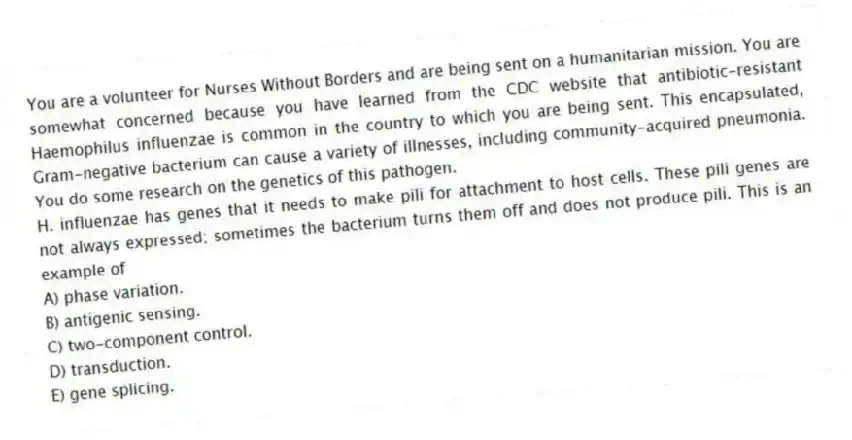
You are a volunteer for Nurses Without Borders and are being sent on a humanitarian mission. You are somewhat concerned because you have learned from the CDC website that antibiotic-resistant Haemophilus influenzae is common in the country to which you are being sent. This encapsulated, Gram-negative bacterium can cause a variety of illnesses, including community-acquired pneumonia. You do some research on the genetics of this pathogen.
-H. influenzae has genes that it needs to make pili for attachment to host cells. These pili genes are not always expressed; sometimes the bacterium turns them off and does not produce pili. This is an example of
A) phase variation.
B) antigenic sensing.
C) two-component control.
D) transduction.
E) gene splicing.
Correct Answer:
Verified
Q66: A patient comes to see you complaining
Q67: You are a volunteer for Nurses Without
Q68: Cells that are His⁻, Strᴿ could be
Q69: You are a volunteer for Nurses Without
Q70: Colonies of the bacterium Serratia marcescens are red
Q72: A patient comes to see you complaining
Q73: You make two agar plates: one is
Q74: A patient comes to see you complaining
Q75: The restriction-modification system always has two genes
Q76: Please select the INCORRECT statement regarding mutation.
A)
Unlock this Answer For Free Now!
View this answer and more for free by performing one of the following actions

Scan the QR code to install the App and get 2 free unlocks

Unlock quizzes for free by uploading documents